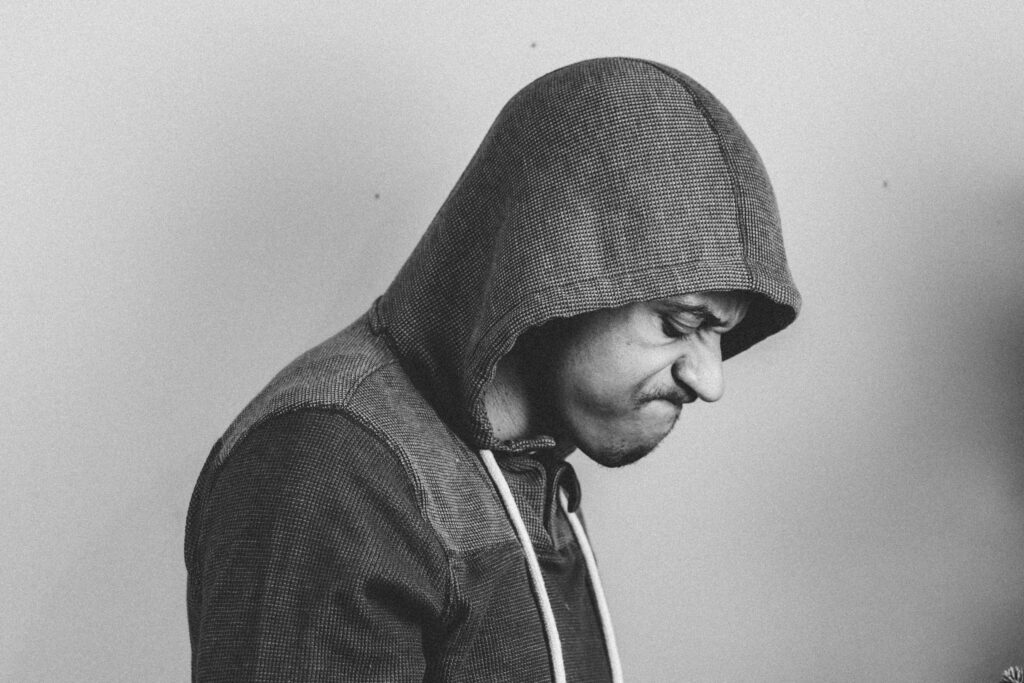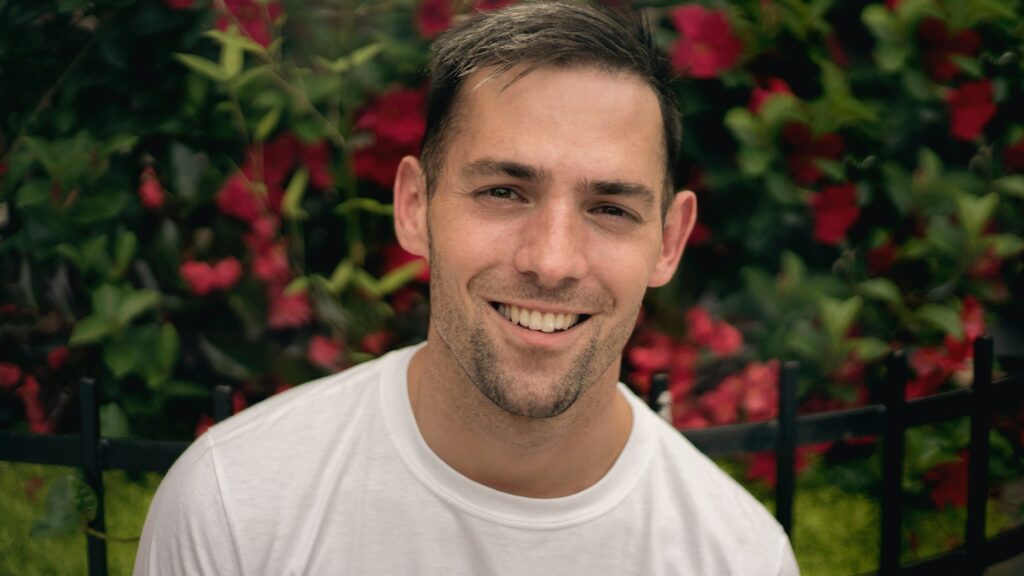
Greg woke up in the morning roaring. He never knew when he woke up how he’d feel, or how he’d react. The combination of angst, explosive rage, heartache, and pain burst from him as he became alert, and it took a few moments before he could gather control of himself and hold it all in. At least he could stop roaring. He went to the bathroom, feeling like he had fire ants on his brain and wanted to scream. Someone had said that sensation was caused by the inflammation in his brain. He didn’t know what it was but it made his face turn red and made him want to scream as loud as he could. Ever since he’d been diagnosed with bipolar disorder he’d taken a wide variety of medications, and nothing seemed to help him feel better. He felt like he lived in a cruel torture chamber ALL the time. He wished for a way to just smash bipolar disorder and get it out of his system.
Treatment-Resistant Bipolar Disorder
In spite of all the medicines he tried, Greg didn’t feel like he could socialize much because of the danger of mood swings that would ignite explosive rage or plunge him into depression… or else he’d rave too much and make a “fool” of himself, as acquaintances said. He couldn’t help it, and it made him feel awful about himself.

He had rapid cycling bipolar disorder and his moods didn’t swing over time, they jarred him from one extreme to the other —and back — in a day. It kept his life in chaos and misery.
The remarks of friends, acquaintances, and even relatives were so derogatory, so humiliating, that he started to develop social anxiety so severe that he was afraid to socialize at all. But being cooped up in the house all the time felt like being locked in prison.
He yearned for fun, excitement, and acceptance. And at the same time he couldn’t trust himself to just “blend in.” How he wished he could smash bipolar disorder permanently.
After high school, he enrolled in college. When it was time for his first exam… he panicked. He couldn’t face it. His anxiety sky-rocketed and he secretly found the keys to his grandmother’s car and took it out in the middle of the night, picked up a couple friends and they hit the road.

His parents and grandmother panicked.
What had he done and where had he gone? They tried to reach him on his phone but he didn’t answer. Finally, late the next afternoon he called and told them he was in a neighboring state.
His mom tried to remain calm and reassuring to avoid triggering him into rage or panic.
“Greg, are you ok?”
“Yeah, I’m fine.”
“Is everyone with you ok?”
“Yeah, mom…really. We’re all ok.”
“Ok good, honey. You need to come home. We need to get Gram’s car back into her garage as soon as we can. Can you get on the road and start home?”
“Yeah.”
“Ok, good. Where are you?”
“I’m in Augusta, Maine.”
“Oh wow. Ok. As I look on the map, it looks like you’re about 4 hours away. So get on the road and we’ll start looking for you in about 3 1/2 to 4 hours or so. And Greg? No alcohol or anything, ok? You need to be safe. Please call me as you go through cities so I know you’re making good progress, ok?”
“Yes, Ok. I’ll be careful.”
Just another crisis that no one saw coming.

Five hours later, Greg pulled into Gram’s driveway. His mom, Chrissy, went outside to meet him and get the keys as quickly and calmly as she could. Miraculously the car seemed undamaged. Greg was ashamed and embarrassed. His mom knew she needed to be accepting (and calm) as she talked with him about what had happened. Greg wished he could smash bipolar disorder. He hated his unpredictable behavior.
Life with Greg had taught her how to handle crises.
The hard way. Whether it was a suicide attempt, or self-medicating with alcohol or substances, or just excited raving episodes, it was ALWAYS important to maintain a calm and kind presence. Greg would quickly escalate otherwise.
His dad loved him too, but Greg’s behavior made him mad. His desire to protect his family made it very difficult for him to be calm in the face of these crises, so he (wisely) let his wife handle the immediate interactions.
The problem was… how could they navigate this the rest of their lives? What would become of Greg after they were gone and not there to help him? Medicines were certainly not helping.
What could they do?

Steve, Greg’s dad, decided to do more research out of sheer desperation. He searched the internet for articles about bipolar disorder and treatments that might help. Something had to give. He loved his son and ached for him to have the ability and the power to live a rewarding life.
To work, provide for himself, maybe someday marry and have a family. None of that seemed possible at this point. Surely his diagnosis wasn’t a death sentence. Surely there was some hope somewhere. He wanted to smash bipolar disorder and free him of it, but how?
He found articles about alternative treatments, but nothing resonated. And then he found an article about research at Stanford University with Shebani Sethi, MD, that made the connection between severe psychiatric disorders, like bipolar disorder and schizophrenia, and metabolic illness. The article showed studies that used interventions like a ketogenic diet and low carbohydrates to treat these disorders.
He learned about the effectiveness of feeding ketones to brain cell mitochondria instead of carbohydrates and how that calmed and balanced brain function, drastically improving symptoms, increasing energy in the muscles of the body, and calming mania and explosive rage. With improved cognitive function, the patients were able to begin building rewarding lives.

So he googled “metabolic psychiatry” and a host of articles came up. He found a great video and podcast called Metabolic Mind which discusses psychiatric disorders and metabolic illnesses that could be treated with nutritional ketosis — a ketogenic diet used in metabolic psychiatry —combined with exercise and other lifestyle changes.
And it turns out that the Baszucki Group is committed to directing resources towards the greater good — and they have already funded new research related to the use of metabolic approaches in psychiatry. Their reason? Matt, Jan and David Baszucki’s son, had experienced radical improvement from bipolar disorder through these interventions, after several medicines didn’t help. The Baszucki family smashed bipolar disorder and helped their son become free. Actually, they crushed it.
Steve let out a deep and relieving sigh.
There was hope.
He searched and found a metabolic psychiatry practice which offered metabolic psychiatry treatment, so he called to make an appointment for Greg, and was excited to see that he and Chrissy could be involved.
After an extensive eval by the team, Greg began an individualized ketogenic metabolic therapy (not keto by YouTube) and they immediately started to adjust his diet according to the plan that the registered dietitian-nutritionist designed for him. There were lots of touchpoints. He was encouraged to participate in the walks and talks that the practice led several times a week, take in the gorgeous woodlands and scenery — with mountain laurel exploding in bloom! — breathe fresh air, and relax. He learned that therapeutic ketosis and exercise help fuel his mitochondria with ketones which would help improve his metabolism and the symptoms of his bipolar disorder.
And so it happened they smashed bipolar disorder.
Greg felt better and better, less volatile, more at ease, over the coming months. Within days, he felt sharper, clear and calm… within weeks they were seeing a real change in all of his symptoms. The calmer his mind was, the more hope he gained.

Four months later, he enrolled in a single course in college to see if he could handle it. He was amazed at the spike in cognition he experienced, and how the brain fog he’d suffered from for years was gone.
The course work was laborious, and required focused effort, but the more he did, the more he got engaged, the better he comprehended it all, and the more triumphant he felt. When it got hard, he didn’t feel panic. What a relief! He was beginning to feel like this must be what it’s like to be on top of your game. Could it be?
He decided to take a somewhat lighter load over the next few semesters, and throw in a summer class here and there, to avoid too much stress. After all, he had time. What was important was being successful — no matter how slow he needed to go.
Greg is well on his way to getting a BA in Literature and a teaching certificate. He continues to build confidence in his stability and health every season.
His parents have been present for every award, every achievement, and rejoice with him every step of the way.
The seemingly unreachable dream of a rewarding life is building and coming into being. Finally. He continues to maintain his therapeutic lifestyle to keep himself stable. He never wants to risk going back to the suffering he had known before.
You can achieve a fulfilling and rewarding life, too.
Do you suffer from a mood disorder or anxiety that just seems treatment-resistant?
If you’re sick of the way that you feel, sick of meds that don’t help enough, or sick of trying one medication after another, call us.
Through the discoveries of metabolic psychiatry, like ketogenic interventions, we can help you smash bipolar disorder and feel better, live better, and enjoy the rewards you yearn for in your life.

To the restoration of your best self,
